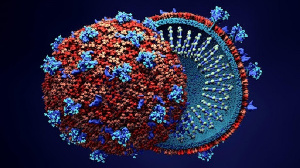 Conspiracy theories make it difficult to achieve the 20 million vaccination target
Conspiracy theories make it difficult to achieve the 20 million vaccination target
A study conducted by the Centre for Plant Medicine Research, Mampong-Akuapem (CPMR) has revealed that a significant number of Ghanaians are hesitant towards COVID-19 vaccines. In a ceremony to present the results of the study, the Ag. Executive Director of CPMR, Dr. Kofi Bobi Barimah said “Against the backdrop of Conspiracy Theories gaining traction especially on social media, the CPMR conducted a rapid study between April and June 2021 to find out the attitudes and opinions of Ghanaians towards COVID-19 vaccines.”
Dr. Barimah noted that in the study, “Data were collected through a cross-sectional survey of adults in the 16 regions of Ghana and assessed respondents’ beliefs in COVID-19 vaccine; attitudes and opinions towards the vaccines; and preferred remedy option for the disease.” He further said, “To understand the attitudes and opinions of respondents, a focused group discussion was also conducted.” Dr. Barimah noted that “The results of the study were both interesting and alarming.”
Dr. Kofi Donkor, the principal investigator of the study in presenting the results said “A total of 683 respondents were sampled and of these, 15% had very little or no knowledge of the COVID-19 infection.” This he said was pronounced among participants living in communities with low or no recorded infection.
Dr. Donkor added that “Respondents in the focus group discussion noted that there was little or no awareness creation on the part of governmental agencies in communities that have not had any confirmed COVID-19 infection resulting in lack of awareness in these communities.”
The study also revealed that only 35.4% of respondents believed the vaccines were not developed by some people to destroy others. Rather alarmingly 64.6% of the respondents either believed the vaccines were developed to harm people (33.2%) or were not sure (31.4%).
Participants in the focus group discussion easily identified with this result because of the many conspiracy theories being peddled on social media some of which were coming from individuals who are perceived to be very credible and groups such as scientists, religious and traditional leaders.
They also indicated that the low level of education on the part of the government to counteract the barrage of false information accounted for the significant number of people who believe the COVID-19 vaccines were developed to harm people.
Dr. Donkor indicated that a very worrying outcome was the fact that “Participants in the focus group discussion expressed fear that the 64.6% of the respondents who either believed the vaccines were developed to harm people or were not sure could be susceptible to vaccine hesitancy.”
“Our studies indicated that, indeed, as high as 58.1% of the respondents either will not take (30.6%) the vaccine or were undecided (27.5%) if given the opportunity to vaccinate.
“Similarly, 46% of the respondents either believed the COVID-19 vaccine will not offer the desired protection (18.7%) or were not sure (27.2%).”
He said, “This means almost 60% of adult Ghanaians may not readily accept the vaccine when given the opportunity to vaccinate.”
Participants in the focal group discussion thought this was dangerous and suggested an aggressive public education on the safety and benefits of the vaccines in order to reduce a potentially high rate of vaccine hesitancy among the adult population.
Since the outbreak of the COVID-19 pandemic in 2020, the Government of Ghana has rolled out strategies to vaccinate about 20 million Ghanaians by the end of the year 2021; and so far, over 1.4 million doses of vaccines have been administered by 20th August 2021 according to the FDA.
Dr. Alfred Appiah, the Deputy Executive Director of the CPMR in a closing remark noted that “Unfortunately, the outcomes of this study suggest that it may be difficult to achieve the 20 million vaccination target; and more importantly, the herd immunity threshold needed to curb the spread of COVID-19 even if the vaccines are available for all Ghanaians.”
He indicated that “As the government makes frantic efforts to acquire more vaccines to be administered to the population, this study has shown that an equal or even greater effort must be made in creating awareness of COVID-19, especially among low infected communities. Similarly, an aggressive public education to counteract conspiracy theories especially on social media must be waged.”